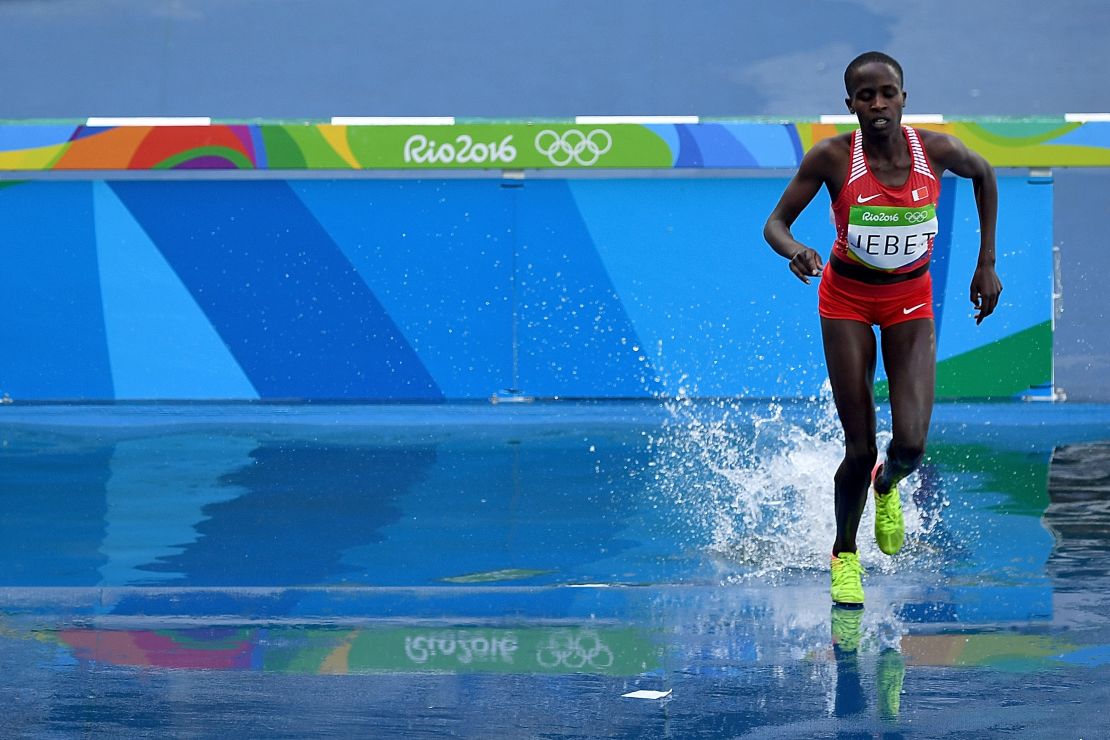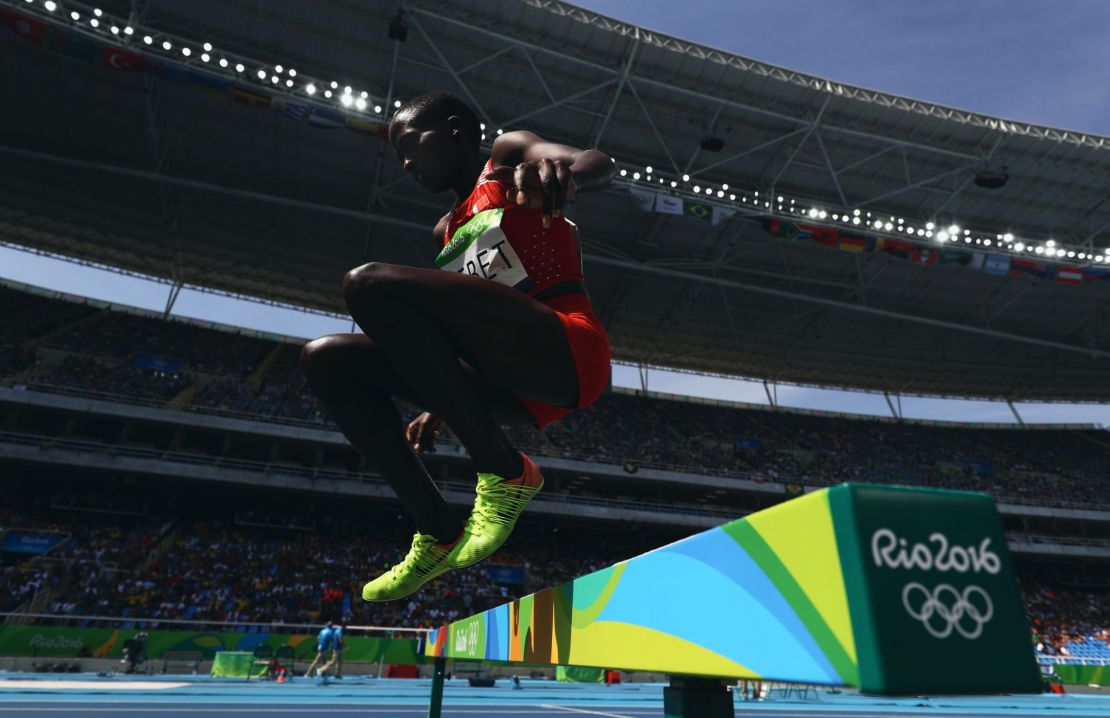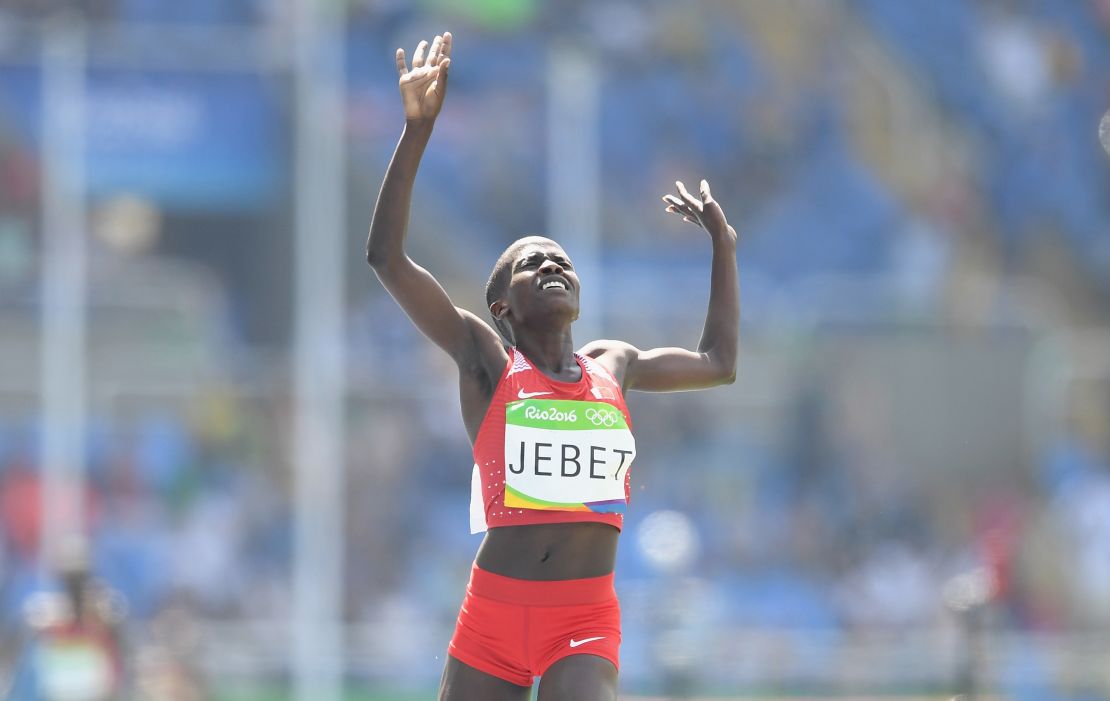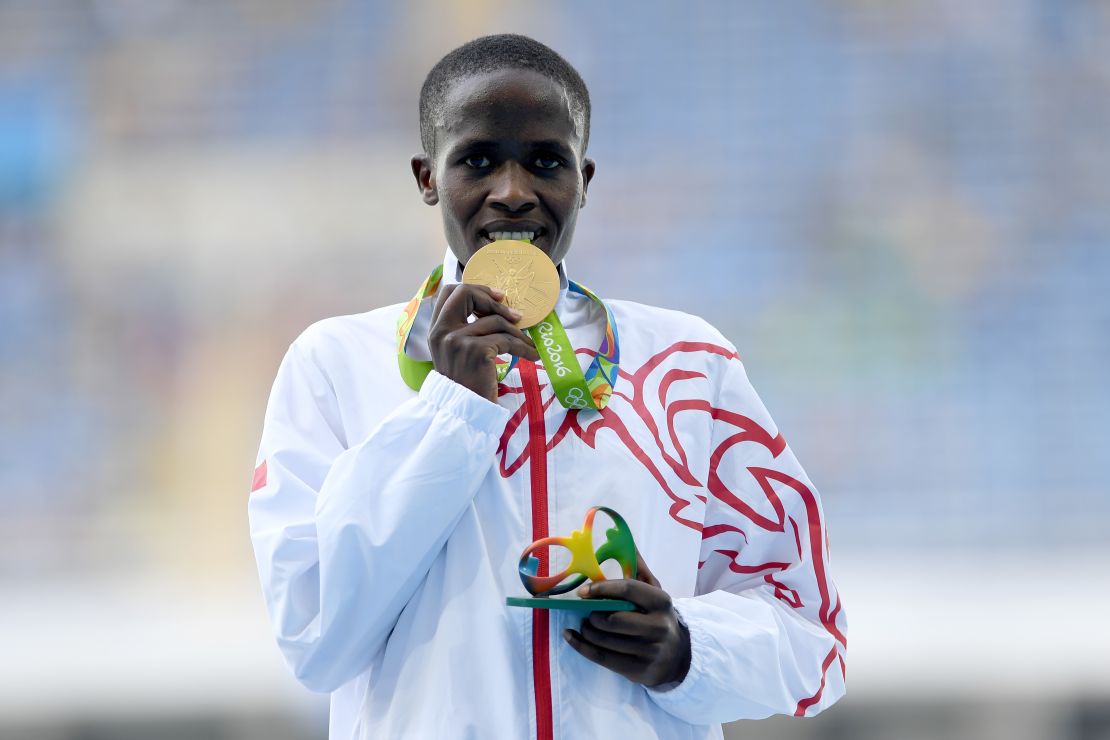It’s the moment athletes the world over dream of: Stepping onto the podium at an Olympic Games as the national anthem plays, and feeling the weight of a gold medal hung around their neck.
The thought of being able to drape themselves in their country’s flag at the end of a race well run, to bask in the cheers and applause of their delighted compatriots, is what makes the years of training worthwhile.
But for some, the tune that plays is unfamiliar, the flag that is raised not the one they were born under. These are the men and women who have abandoned their homes in the hope of securing sporting stardom elsewhere.
When Ruth Jebet took gold in the women’s 3000m steeplechase at the Rio Olympics, after racing to victory in 8:59:75 – just shy of a world record – she was greeted with boos in her native Kenya – because she was running on behalf of Bahrain.

Many in Kenya accused Jebet, 19, of betraying her homeland.
But Jebet’s manager Gregory Kilonzo says without switching allegiance to the Middle Eastern nation she may never have had the chance to perform on the world stage.
“People complain that Ruth was sold to Bahrain but no, that’s not the case,” Kilonzo told CNN. “Here in Kenya there are very many athletes and all of them want to participate in these games.
“You have to go for trials and compete just to get a chance and its only one person who gets selected for a particular race … But in Bahrain they don’t even do trials for the athletes, they look at your previous competitions.”

READ: Can Kenya’s Olympic heroes inspire gold rush?
Shifting loyalties
More than 30 former Kenyan runners have donned foreign uniforms for the Rio Olympics. The largest contingents have gone to Bahrain and Turkey, followed by Israel and Bosnia.
Jebet is joined on the Bahrain team by the likes of Eunice Kirwa, a marathoner who won silver on Sunday, and men’s steeplechase runners John Koech and Nelson Cheruitich.
Kilonzo says aspiring athletes simply don’t get the same training opportunities or financial support at home in Kenya.
“When I noticed Ruth she was out of school, she was sent home for fees,” he says. “I took her back to … school, went to the market and bought her new shoes and started training her.”
The runner was approached by Bahrain’s sporting authorities after competing at the world junior championships at 16.
But it was her win in Rio – beating Kenya’s Hyvin Jepkemoi into second place – that sparked a flood of criticism of her decision to switch allegiances.
READ: Start-up making shoe fit for Kenya’s Olympic heroes

Social media storm
Kenya’s boy band Sauti sol said in a tweet: “It breaks our heart to see Ruth Jebet win gold in women’s 3000m steeplechase for Bahrain. Such a sad moment for Kenya.”
Some on social media were angered by what they saw as a lack of patriotism on the runner’s behalf.
Ruth Jebet is “running away with our gold,” wrote Florence Ndungu on Twitter.
But others were more understanding.
“We don’t know Ruth Jebet’s story and dreams so why are we criticizing her journey?” asked Gitaki Martin. “Everyone loves their motherland but doesn’t mean your dream path is there.”
“Sometimes in life, you have to follow your heart & do what’s best for you,” said Kenyan musician Suzanna Owiyo.
And a few insisted that Jebet’s victory was a triumph for Kenya, regardless of which colors she was running under.
“Ruth Jebet is a Kenyan name … with Kenyan blood … Whether the gold goes to Bahrain or not … KENYA LEADS!!” cheered Stephen.

Bank balance
Jebet’s manager Kilonzo says it is also a win for her bank balance; he says she will be paid the equivalent of $500,000, compared to the $10,000 her fellow countrymen will earn.
“Look at [men’s 800m gold medal winner David] Rudisha: He will be paid 1 million Kenya shilling, while Ruth will get 52 million,” he says. “She is appreciated there.”
It’s not just Bahrain that poaches Kenyan athletes. Bernard Lagat, who won two Olympic medals for Kenya, is now competing for the US in his fifth Olympic Games – at the age of 41.
READ: 13 ways to think like an Olympic champion
But former IOC President Jacques Rogge is no fan of sports stars trading allegiances.
“We cannot oppose it because it’s a sovereignty matter,” he said back in 2012. “But let me tell you very frankly: I don’t love that.”




